Microsoft has updated Skype for Linux to version 4.3. The software brings new features and the user interface, neudeutsch UI, has also been revised.
With version 4.3.0.37 the direct Alsa support is history, instead the VoIP software relies completely on PulseAudio. Thereby PulseAudio 4.0 or higher recommended for Skype for Linux.
And before the shouting starts: "WHAT??! Proprietary software – from Microsoft?!" – I want to keep in touch with various people and they use Skype. But we Linuxers are flexible, right?! &
Changes and improvements in Skype for Linux 4.3
In recent years, relatively little has changed in the user interface of Skype for Linux. That does not really change with this version. While the Windows and Mac versions have been changed more and more, Linux users have to be satisfied with a somewhat dusty UI. This is not really a big deal, because Skype is supposed to be used for calling and not to win a beauty contest. But it's not quite that ugly either ..
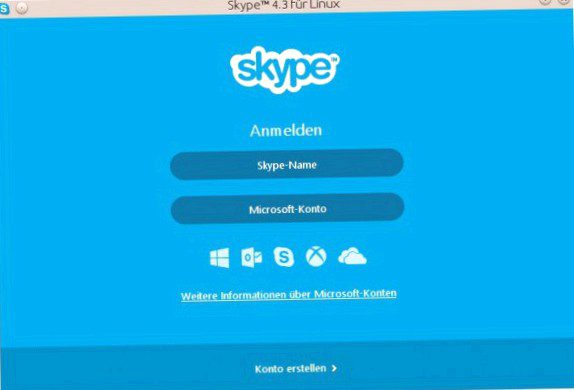
Skype for Linux: login screen
There are minor improvements in the login screen. Furthermore, after logging in there is a new toolbar. Here you can find buttons to add new contacts, start a call or review recent file transfers. These buttons were also present in previous versions of Skype for Linux, but they were at the bottom – so it's more clearly arranged.
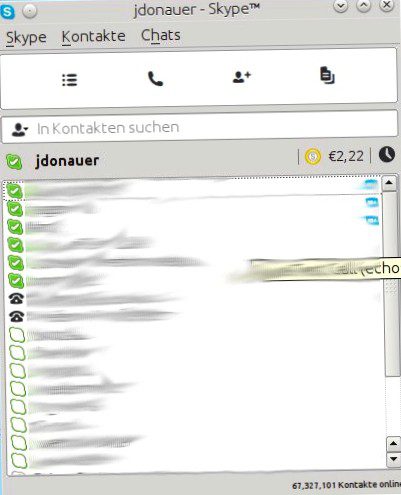
Skype for Linux: signed in
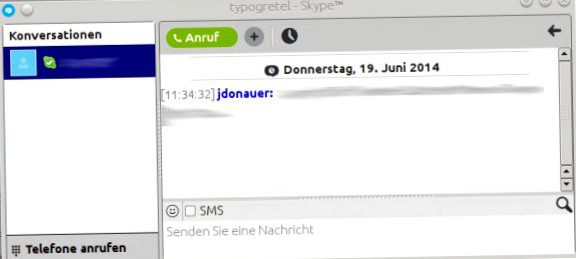
Skype for Linux: Chat
Furthermore there is integration for native hints or messages. These can also be configured. To do this, click Skype> Options> Notes. For some events you can check the button "Show notes in the lower right corner" and then there will be a note accordingly.
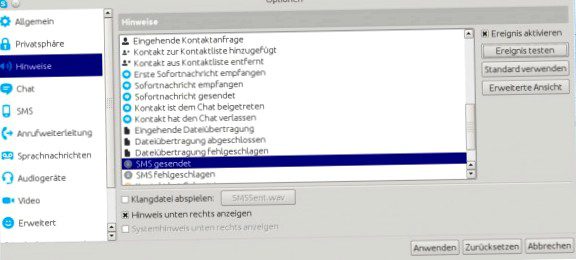
Skype for Linux: Configure hints
Skype for Linux: Event
System requirements
Before downloading the latest version of Skype for Linux, you should take a quick look at the system requirements. However, most computers today should meet these.
- Processor with 1 GHz or faster
- 256 MByte RAM
- 100 MByte free space on the hard disk
- Graphics card drivers with Xv support
- Integrated or external microphone for voice calls
- Internet connection – preferably broadband (GPRS is not supported for voice calls)
- Qt 4.7 and D-Bus 1.0.0
- libasound2 1.0.18
- PulseAudio 1.0 (optional)
- BlueZ 4.0.0 (optional)
Installation and debugging
You can download the current Skype version here (the site still talks about 4.2, but there are 4.3). The package for Ubuntu 12.04 LTS also works for Ubuntu 14.04 LTS "Trusty Tahr" and thus also with me under Kubuntu 14.04 and Linux Mint 17.
Furthermore there are packages for Ubuntu 10.04, Debian 7 "Wheezy", Fedora 16, openSUSE 12.1 and a generic package (Dynamic). If you use the latter, you need to have the corresponding libraries installed and then unpack the archive. You start Skype by changing into the directory you just unzipped and then run the command ./skype on the command line.
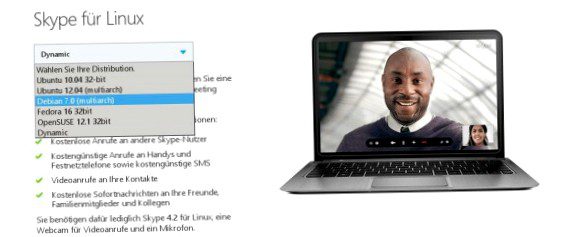
Skype for Linux
I read that there can be problems if an older version of Skype was installed. In particular the data folder is to blame. If this is the case, simply rename or move Skype's Data folder in the Home section and try again. In addition, the 32-bit libraries must be installed. My Kubuntu pointed me to missing packages and installed them on its own.